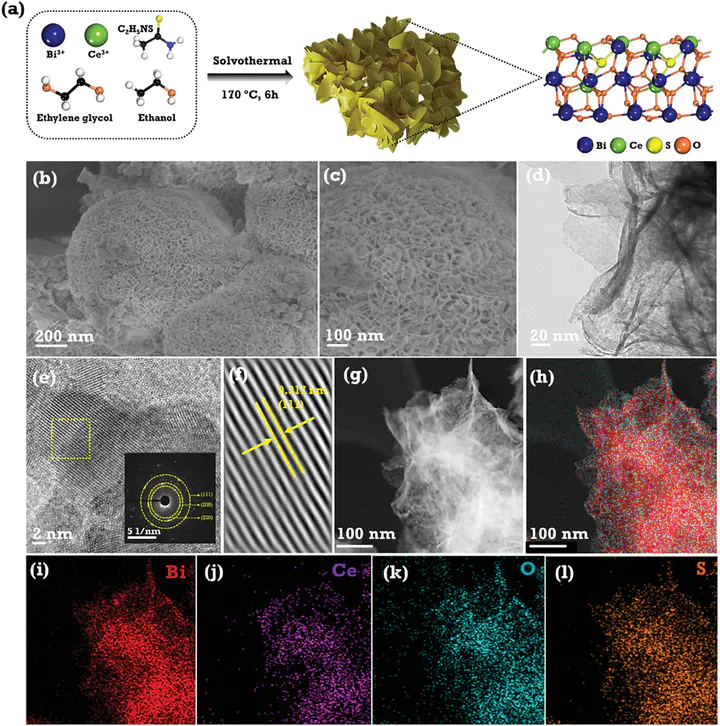Surface Area‐Enhanced Cerium and Sulfur‐Modified Hierarchical Bismuth Oxide Nanosheets for Electrochemical Carbon Dioxide Reduction to Formate

Abstract
Electrochemical carbon dioxide reduction reaction (ECO2RR) is a promising approach to synthesize fuels and value-added chemical feedstocks while reducing atmospheric CO2 levels. Here, high surface area cerium and sulfur-doped hierarchical bismuth oxide nanosheets (Ce@S-Bi2O3) are develpoed by a solvothermal method. The resulting Ce@S-Bi2O3 electrocatalyst shows a maximum formate Faradaic efficiency (FE) of 92.5% and a current density of 42.09 mA cm−2 at −1.16 V versus RHE using a traditional H-cell system. Furthermore, using a three-chamber gas diffusion electrode (GDE) reactor, a maximum formate FE of 85% is achieved in a wide range of applied potentials (−0.86 to −1.36 V vs RHE) using Ce@S-Bi2O3. The density functional theory (DFT) results show that doping of Ce and S in Bi2O3 enhances formate production by weakening the OH and H species. Moreover, DFT calculations reveal that OCHO is a dominant pathway on Ce@S-Bi2O3 that leads to efficient formate production. This study opens up new avenues for designing metal and element-doped electrocatalysts to improve the catalytic activity and selectivity for ECO2RR.